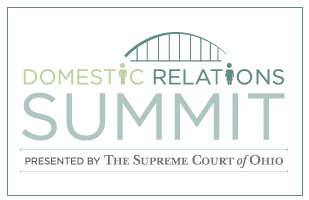New Ideas Will Bring Changes to DR Courts

Judges exchange ideas at domestic relations summit.

Judges exchange ideas at domestic relations summit.
Serving as a judge for the better part of two decades, Lucas County Domestic Relations Judge David Lewandowski knows judicial education is an ongoing process, which is why he and several of his court staff attended the three-day Domestic Relations Summit 2014 in Columbus.
Ohio’s domestic relations courts hear cases involving divorce or dissolution of marriages, annulment, legal separation, spousal support, and allocation of parental rights and responsibilities for the care of children.
Judge Lewandowski joined hundreds of Ohio court personnel at the summit looking to improve the lives of those going before their courts. The summit focused its efforts on minimizing conflict for Ohio children and families.
“It’s always good to exchange ideas,” Judge Lewandowski said. “Other courts, other areas of the state, might have different ways of approaching a problem that we may not have heard of yet.”
Judge Lewandowski said his team learned how to prioritize and “make the divorce experience a little less painful.”
“We had a session on how to triage cases, which we discussed in our court how we do that,” Judge Lewandowski said. “Ten percent of our cases take up 80 percent of our time, so we looked to expedite cases and pay as much attention to other cases that need hands-on court intervention.”
Between two pre-summit meetings and the actual summit, Judge Lewandowski said his team looked for best practices and ideas about “current hot-button issues” that will work for Lucas County.
“We hope to implement changes to how we handle cases to make it less stressful for clients and lawyers,” Judge Lewandowski said.
Stephanie Graubner Nelson, policy and research counsel in the Children& Families Section at the Supreme Court, said the summit will lead to real change in the lives of children and families in transition.
“The presentations focused on caseflow management, minimizing conflict by promoting the well-being of families and the best interest of the children, protecting families from abuse, and dispute resolution,” Graubner Nelson said.
Graubner Nelson said the objective of the summit was for courts to assess their current case management, resources, and challenges while developing local plans and solutions for improving case management. The courts then assessed and made new strategies for their own courts.
Henry County Family Court Judge Denise McColley said the summit exposed her court to “cutting edge research and practices,” which she said will help improve how her court will work with families.
“Going through a divorce, dissolution of marriage or post-decree dispute is an extremely difficult and stressful process for most litigants,” Judge McColley said.“Having the summit has given each court and its team the opportunity to focus on current practices in the court while learning ways to improve the process of divorce, dissolution or post decree disputes. The ultimate goal is to make the court process less painful and more productive for the families who appear before the court.”
Judge McColley said her team will implement what they have learned at the summit, and she hopes the court will improve service to those appearing before Henry County Family Court.
“We are working on improving domestic violence screening and on identifying ways to make proper referrals early in the court process; promoting unbundled legal services, particularly to help those who would otherwise appear pro se; and on improving our court evaluator process,” Judge McColley said.
The Supreme Court will summarize the strategies determined during the summit and post all related resources to practices, procedures, and articles related to cost-efficient and effective case management on the Supreme Court’s Judicial eCademy website.


